Do you know how long your spices, flours, and oils will last? Here’s a quick guide to the shelf life of your pantry staples, and how to store them so they stay fresh longer.
Some Paleo pantry staples are expensive, and the last thing you want to happen is for ingredients to go bad before you’ve had a chance to use them. While some Paleo ingredients have best-by dates, many unfortunately do not. So how do you know if your grain-free flour and nut-based milks are still okay to use?
This helpful guide will ensure that you make use of your Paleo pantry items without sacrificing quality. There are also tricks to storing your ingredients to make them last longer than the typical best-by dates. Read on for all the best storage hacks!
Want to go Paleo? Not sure where to start?
Start with this FREE Paleo For Beginners Guide Today!
Spices
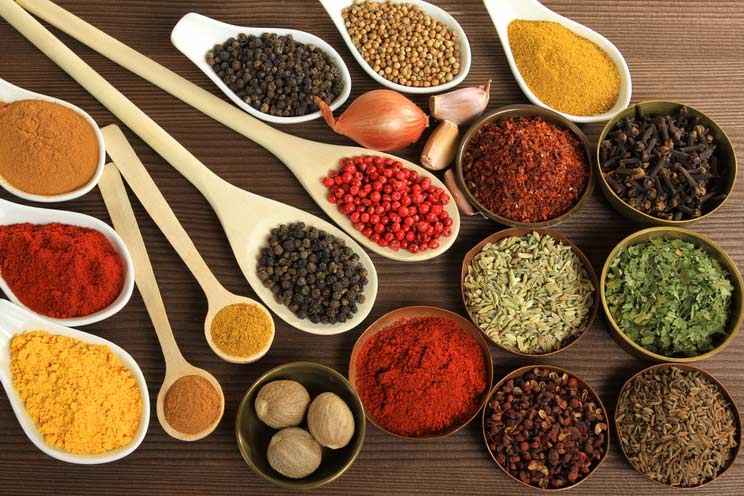
Salt
Himalayan and non-iodized salt doesn’t expire, but it might get clumpier sooner than regular table salt. The best way to make your salt last for years is to store it in a cool, dry place, like a pantry, and keep it from getting moist. If you buy salt in bulk, store most of it in the pantry and just keep a small shaker jar around the stove or other prep areas for cooking. Even if salt is lumpy, it isn’t bad and can still be used.
Pepper
Much like salt, black pepper has a long shelf life. When it’s ground, it will last for two to three years, and when the peppercorns are whole, they can last up to six years.
Herbs
Fresh herbs will last two to three weeks when properly washed and stored. For hardy herbs (rosemary, oregano, chives, etc.), gently wash them under cool water. Next, dry and wrap them loosely in a paper towel, then store the herbs in a reusable plastic bag in your fridge. For tender herbs (cilantro, basil, parsley, etc.), store them upright in water like a bouquet of flowers. After washing them, trim the stems, and place the herbs in a jar filled with an inch of water. Cover the top of the jar with a reusable plastic bag sealed with a rubber band. Note: While most tender herbs can be stored in the fridge, basil is best left out on your counter at room temperature.
If purchasing dried herbs, they are almost always good for two or three years when kept in a cool, dry place. This is true for typical spicy seasonings like garlic, onion, cayenne, chili, and peppers, as well as the common “pumpkin pie spices” like allspice, cardamom, cinnamon, and ginger.
Flours and Baking Items
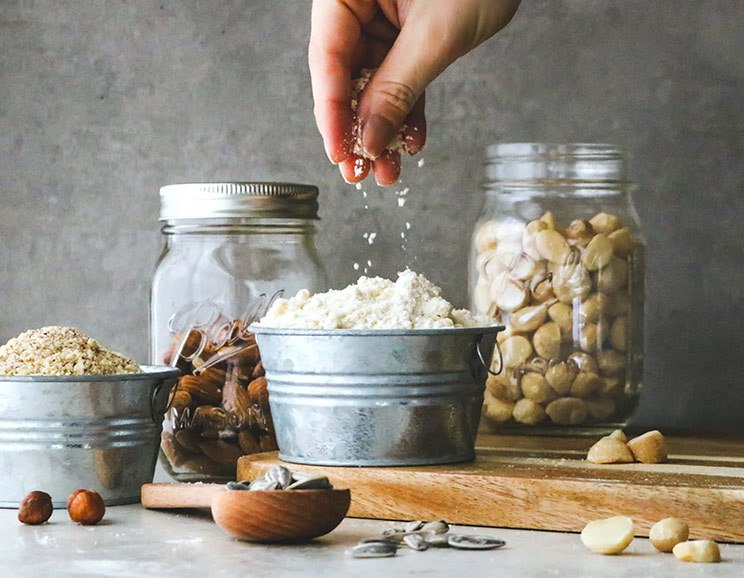
Coconut Flour
To prevent moisture buildup, coconut flour is best stored in the refrigerator after opening. Depending on the quality of the brand, it can usually stay fresh in an airtight container for up to 18 to 24 months. As long as it isn’t clumpy or smells funny, coconut flour that has been refrigerated and properly sealed can typically be used until it’s gone.
Almond Flour
Almond flour has one of the shortest shelf lives of gluten-free flours. It should always be refrigerated and stored in an airtight container after opening and then used within six months. It can also be stored in the freezer for up to nine months.
Flax
Whole flax seeds that are unopened can be stored in a pantry for up to a year before opening, or by the “best used by” date that the package advises. Once opened, whole flax seeds should be kept in an airtight container in the refrigerator for up to a year, and ground flax should be stored in an airtight container in the fridge for up to six months. If flax is kept outside of the fridge for too long, it can go rancid.
Tapioca Flour
Tapioca can be stored in a pantry after opening for up to a year. It does not need to be refrigerated. Store in an airtight container and ensure that it’s not in an area that gets exposed to moisture.
Cassava Flour
Cassava flour does not need to be refrigerated after opening and can be stored in a pantry for at least a year after it has been opened. Make sure it is sealed tightly in a bag or, better yet, kept in an airtight jar or container.
Arrowroot Powder
After opening, arrowroot powder can be kept in a pantry for up to a year. To stretch the shelf life to two or three years, store in a refrigerator after opening.
Baking Soda
Baking soda is best used within two years if unopened. After opening, it should be used within 12 to 18 months when stored in a cool, dry pantry. Do not store unsealed in the fridge unless you want to use it as a deodorizer!
Baking Powder
Baking powder will lose its potency faster than baking soda and should be used within 12 months after opening.
Vanilla Extract
This common baking ingredient has no expiration or best-by date as long as it’s kept in a pantry and not exposed to extreme heat.
Chia Seeds
Unopened, chia seeds will typically last for about two years after the best-by date listed on the label. Once opened, chia seeds should be stored in an airtight container in the refrigerator for up to two years.
Oils & Fats
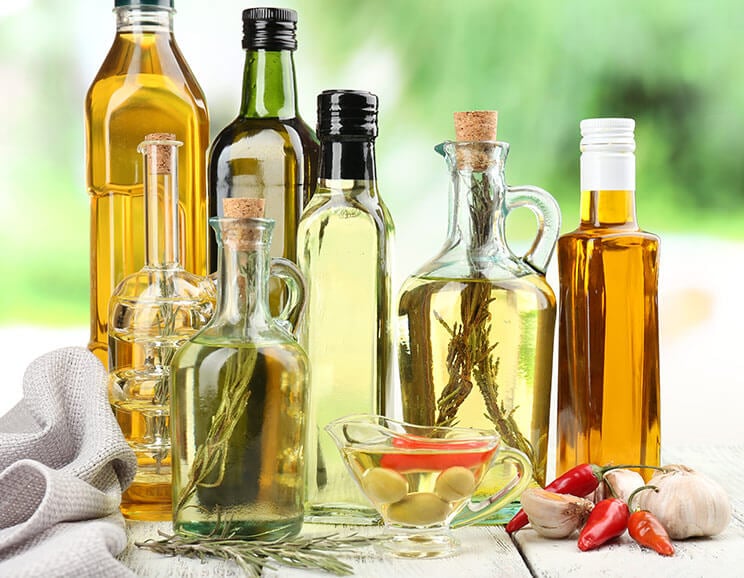
Olive Oil
It’s best to store olive oil in a cool, dark place. Unopened, it can stay fresh for two years. Once opened, olive oil is best used within two to three months.
Coconut Oil
Coconut oil is best stored in a cool, dark pantry. Refined coconut oil lasts about 18 months while extra virgin coconut oil will last closer to two or three years due to its higher antioxidant count.
Avocado Oil
Once opened, avocado oil lasts for six to nine months. It should always be stored in a cool, dark place, away from heat.
Butter
When refrigerated, unopened butter is usually good for up to six weeks past the sell-by date. While opened, butter will last for at least a month after its sell-by date. If you’re storing butter on the counter, keep in a sealed dish and use within seven to ten days.
Ghee
Once opened, ghee can be stored in a cool, dark cabinet for up to six months. Keep it in the refrigerator to extend the shelf life for up to a year.
Lard
Once opened, lard can be kept in the refrigerator for up to a year, or frozen for up to three years.
Tallow
Tallow can either be kept in the refrigerator or at room temperature in an airtight container or jar where it can last for up to two years.
Sugars and Sweeteners
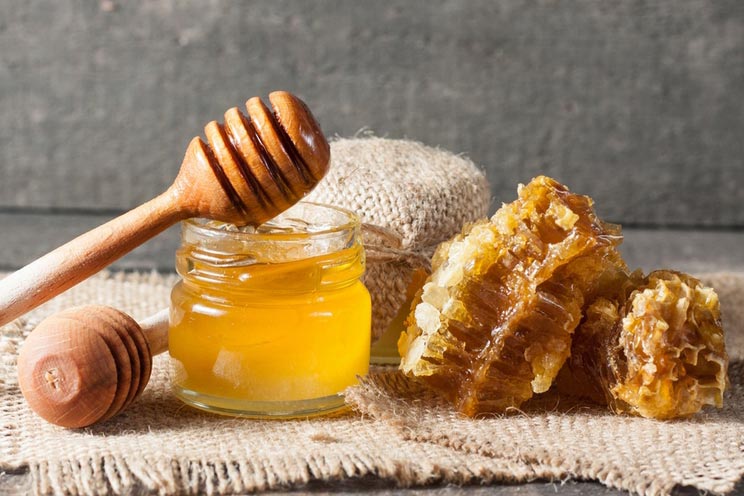
Dates
Dates can be kept in the pantry for up to three months during cooler months, or one month during hotter months. They will last in the refrigerator for six to 12 months.
Raw Honey
When sealed properly, raw honey can last for five or more years. While the appearance may change over time, including getting a cloudy look or lightening or darkening in color, honey rarely goes bad as long as it’s not exposed to air for long amounts of time.
Maple Syrup
When unopened, syrup can be stored in a pantry for one to two years. After opening, it will keep in the refrigerator for up to a year, or you can keep it frozen indefinitely in a freezer-safe container.
Coconut Sugar
Unopened, coconut sugar will last one to two years in a pantry. Opened, it will last for six to 12 months in the pantry or 12 to 18 months in the refrigerator.
Stevia
In powdered form, stevia will last in a pantry for up to four years. In liquid form, it can last for up to two years in a pantry as long as it is sealed tightly. There’s no need to refrigerate either form of stevia.
Molasses
Molasses has a long shelf life if it is stored properly – kept in a cool, dry place and sealed. It can last in a pantry, unopened, for more than five years, and opened, for three to five.
Nuts, Seeds, and Coconut
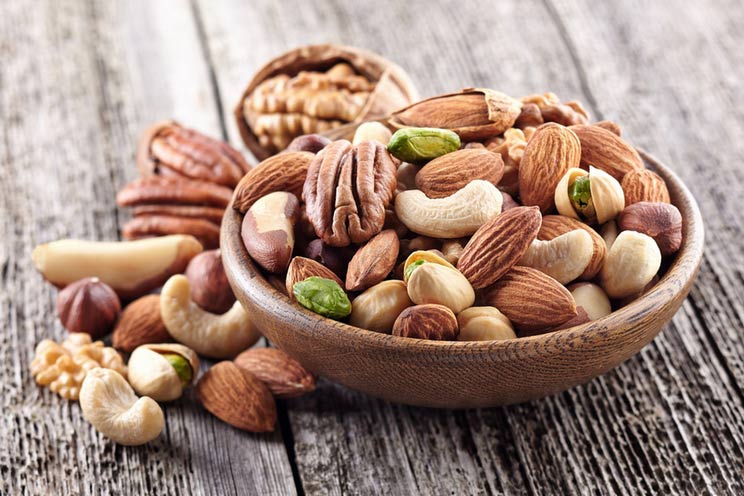
Nuts and Seeds
Raw, unopened nuts and seeds will last in a pantry for up to a year, and typically the worst thing that will happen is that they’ll get a little stale. Roasted nuts or seeds, however, can turn rancid sooner, and should be used within six months. Storing nuts and seeds in airtight containers in the fridge or freezer can extend their shelf life for a year or longer. When chopped or ground, nuts are best stored in the fridge or freezer and will last for six months to a year.
Nut Milks
The shelf life of nut milks vary by brand and ingredients, but generally, they’re good for seven to 14 days after opening when refrigerated. Homemade nut milk should be used within three days, even when refrigerated, or can be frozen to extend the shelf life. Canned coconut milk will last in a pantry for up to a year, but should always be refrigerated after opening, and used within three days.
Nut and Seed Butters
Most nut and seed butters are good in a pantry for a year or two if unopened, and for a few months if opened. Most of them can have their shelf life extended by three months if storing in a refrigerator.
Shredded Coconut
When unopened or stored in an airtight container, shredded coconut is good in a pantry for three to six months. It can keep well for up to a year in a refrigerator.
Tea and Coffee
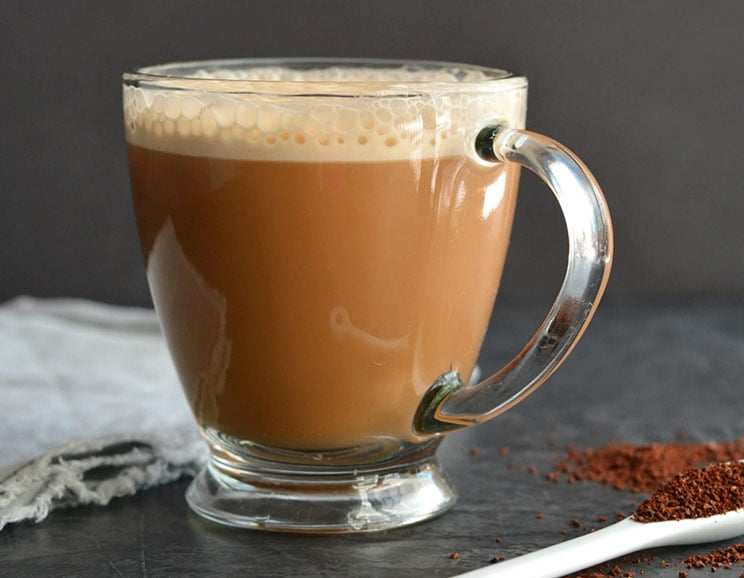
Coffee
Whole bean roasted coffee will last in a sealed container in the pantry for up to nine months, or in a freezer for 12 to 18 months. Ground coffee in a sealed bag or container will last for two to three months in the pantry, and for up to nine months in the freezer. Typically, the worst that happens with coffee as it extends beyond these times is that it develops a stale taste, but it can also go rancid in some cases.
Loose Leaf Tea
Loose leaf green and white tea will last unopened in a pantry for up to a year, and black tea can last up to two years. Once opened, loose tea will last about six months. Storing in a fridge or freezer can double the shelf life.
Raw Cacao Powder
Unopened cacao powder has a shelf life of one to two years. Once opened, it’s best used within four to six months. It can also be stored in the freezer to extend the shelf life past a year.
Cocoa Powder
When sealed and stored in a cool pantry, cocoa powder lasts about two to three years. It will lose flavor over time and develop a stale taste if it extends beyond that time, but will typically not go rancid.
Vinegar, Aminos, and Nutritional Yeast
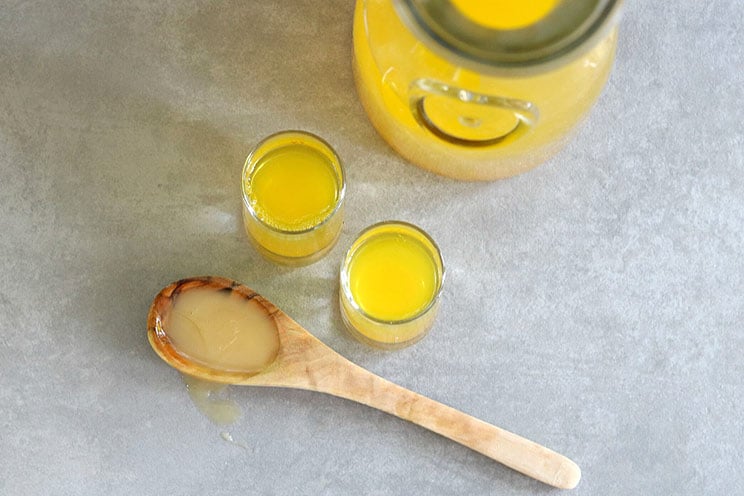
Apple Cider Vinegar
When opened, apple cider vinegar stays fresh in the pantry for 12 to 18 months. Cloudiness doesn’t indicate that it has gone bad as most cider vinegar with “the mother” will have a hazy appearance from the beginning.
Coconut Aminos
Unopened, coconut aminos can last in the pantry for up to a year. Once opened, they need to be refrigerated and should be used within four to six months.
Nutritional Yeast
When it’s not opened, nutritional yeast can store in a cool, dry pantry for up to a year. After opening, it’s best kept in a fridge for up to a year, or in the freezer for up to two.
Bone Broth, Collagen, and Gelatin
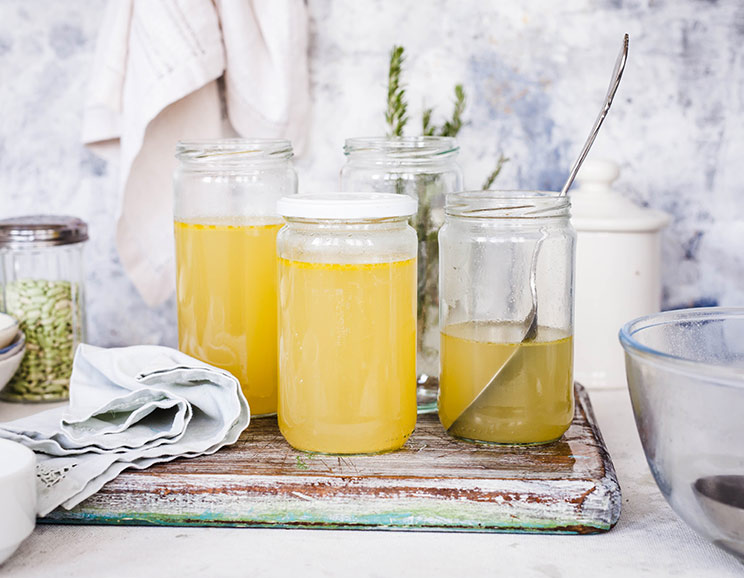
Bone Broth
Shelf-stable, store-bought bone broth will typically last sealed and unopened in a pantry for a year or two. After opening store-bought broth or when using homemade broth, it should be refrigerated and is best used within three days. Both store-bought and homemade bone broth will freeze for six months, but shouldn’t be kept much longer than that for optimal nutrition.
Collagen and Gelatin Powder
When stored in a cool, dry place, collagen and gelatin powder will last for two to three years regardless of whether it has been opened or not.

(Read This Next: How to Store Fruits and Vegetables To Make Them Last Longer)


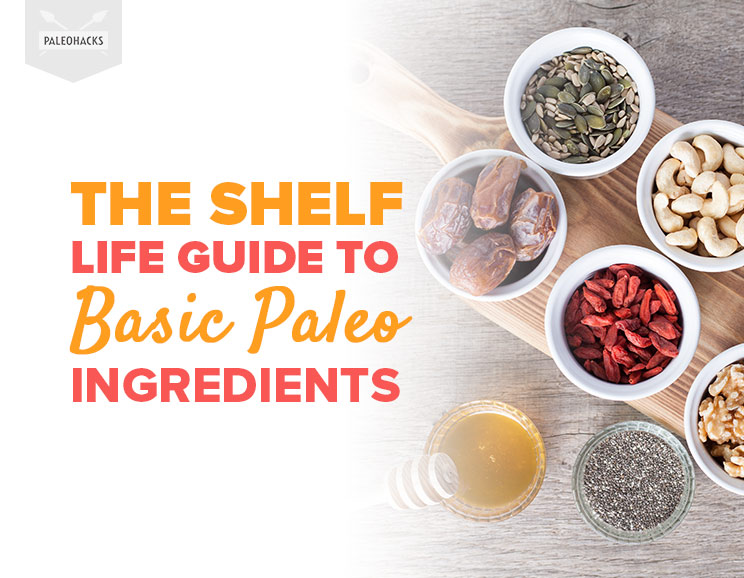
 9 Mother’s Day Brunch Ideas from Sweet Potato Toast to Coconut Flour Pancakes
9 Mother’s Day Brunch Ideas from Sweet Potato Toast to Coconut Flour Pancakes
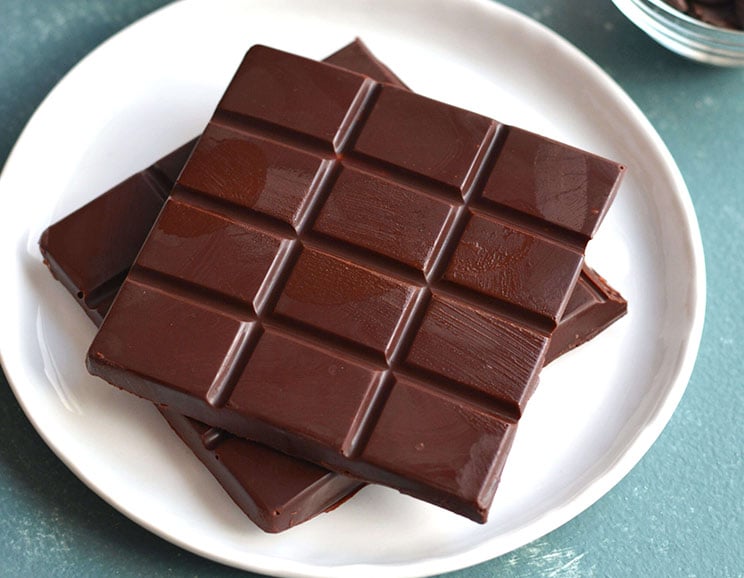

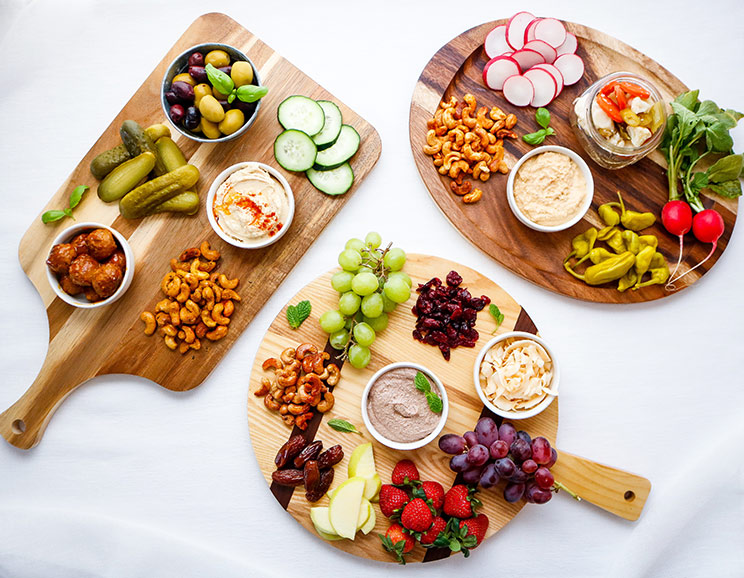

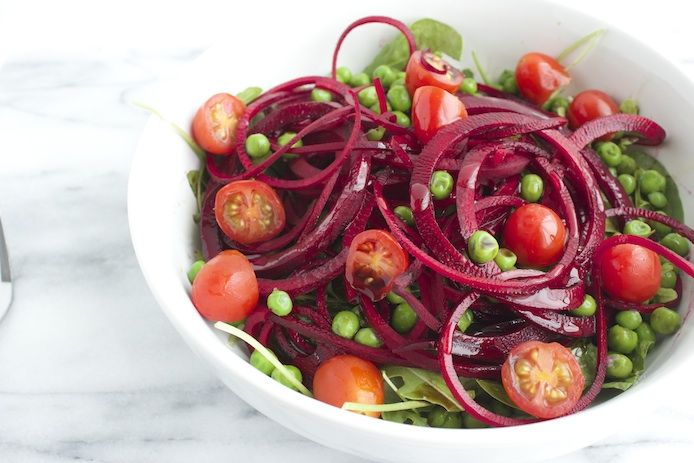


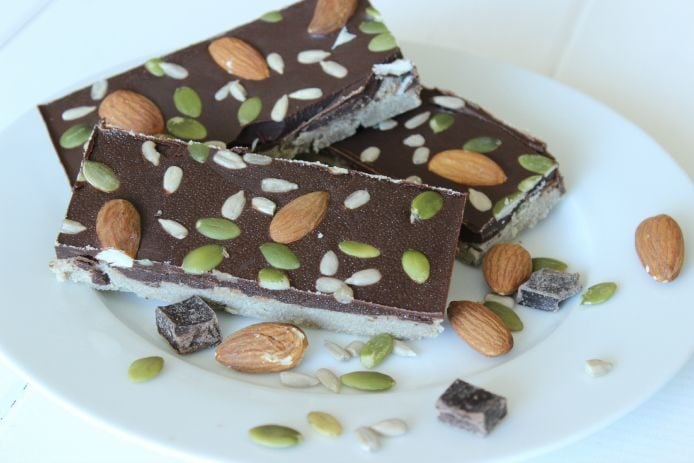
Show Comments